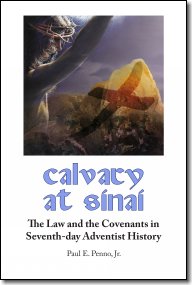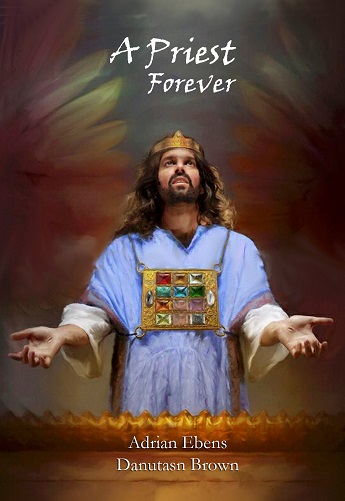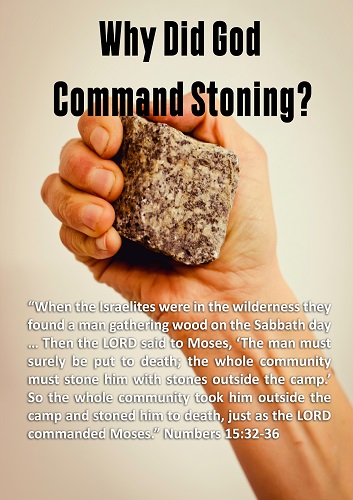Isaiah's Experience from Old to New Covenant
I was reading Calvary at Sinai and A Priest Forever and thinking about how it is God wants to be the Christian from the Old Covenant experience to the New Covenant experience. I found this experience of Isaiah's, when he sees the glory of God near the beginning of his walk as a prophet, to be insightful to how this process happens - from relying on self to relying on God.
Isaiah 6:1-8 In the year that king Uzziah died I saw also the Lord sitting upon a throne, high and lifted up, and his train filled the temple. Above it stood the seraphims: each one had six wings; with twain he covered his face, and with twain he covered his feet, and with twain he did fly. And one cried unto another, and said, "Holy, holy, holy, [is] the LORD of hosts: the whole earth [is] full of his glory."4 And the posts of the door moved at the voice of him that cried, and the house was filled with smoke.
Then said I, "Woe [is] me! for I am undone; because I [am] a man of unclean lips, and I dwell in the midst of a people of unclean lips: for mine eyes have seen the King, the LORD of hosts."
Then flew one of the seraphims unto me, having a live coal in his hand, [which] he had taken with the tongs from off the altar: And he laid [it] upon my mouth, and said, "Lo, this hath touched thy lips; and thine iniquity is taken away, and thy sin purged."
Also I heard the voice of the Lord, saying, "Whom shall I send, and who will go for us? "
Then said I, "Here [am] I; send me."
As he was standing in front of the temple in Jerusalem, he saw Christ. But when he was confronted with the presence of God's holiness, Isaiah feels undone - he even states that he, a prophet, has unclean lips! Why would a he say that? Here is where Jones and Waggoner's message of the covenants helped me to understand that his response was because God's glory caused him recognize the condition of his heart (unclean).
Isaiah was a prophet of God, however, he originally thought that there was a difference between himself and those who were subject of his prophecies. He could not see his true condition until he was confronted with the high holiness of God. Inspiration confirms this:
As the prophet Isaiah beheld the glory of the Lord, he was amazed, and, overwhelmed with a sense of his own weakness and unworthiness, he cried, “Woe is me! for I am undone; because I am a man of unclean lips, and I dwell in the midst of a people of unclean lips: for mine eyes have seen the King, the Lord of Hosts.” {RH December 22, 1896, par. 2}
Isaiah had denounced the sin of others; but now he sees himself exposed to the same condemnation he had pronounced upon them. He had been satisfied with a cold, lifeless ceremony in his worship of God. He had not known this until the vision was given him of the Lord. How little now appeared his wisdom and talents as he looked upon the sacredness and majesty of the sanctuary. How unworthy he was! how unfitted for sacred service! His view of himself might be expressed in the language of the apostle Paul, “O wretched man that I am! who shall deliver me from the body of this death?” {RH December 22, 1896, par. 3}
Here we have been granted a view of what happens when man sees God’s greatness and majesty. The sight of the Lord makes known the presence of sin, and either removes the sin or destroys the sinner, according to the circumstances under which He is seen and the mindset of the sinner (does he believe in forgiveness and mercy?), ‘’for whatsoever a man soweth, that shall he also reap.’’
Isaiah saw Christ the visible embodiment of the law of God, which is the character of God. The only hope when we are confronted with our abounding offences is to throw ourselves on the grace that much abounds (Rom 5:20). The law entered in the person of Jesus Christ to Isaiah. When all hope seems lost, Christ reaches out and offers grace at the exact same moment.
Waggoner said on this point concerning Isaiah 6:6,7:
Mark how quickly Isaiah's sins were removed. All he did was to acknowledge that he was a sinner. As soon as he said, "I am a man of unclean lips," the angel touched him with the coal from God's altar, saying, "Thine iniquity is taken away." "If we confess our sins, He is faithful and just to forgive us our sins, and to cleanse us from all unrighteousness." Only acknowledge your sin, and you may know that it is gone. Some sincere souls say: "I have confessed all the sins I know of, and I am resolved not to stop until I have discovered every sin in my character, and have confessed it; so that I may be forgiven." Why, you could not nearly enumerate all your sins in a lifetime. They are more than can be numbered. Isaiah did the whole thing at once: "I am a man of unclean lips," which meant that he was unclean in heart. The publican said: "God be merciful to me, a sinner," and went to his house justified. Be assured that if you acknowledge yourself to be a sinner, you are forgiven. {January 26, 1899 EJW, PTUK 67.6}
This promise represents the new covenant. You do not justify yourself but allow Christ to work in you. Part of the 1888 message is right here in the beginning of the book of Isaiah.
Isaiah had a wonderful view of God’s glory. He saw the manifestation of God’s power, and after beholding his majesty, a message came to him to go and do a certain work. He felt wholly unworthy for the work. What made him esteem himself unworthy? Did he think himself unworthy before he had a view of God’s glory? —No; he imagined himself in a righteous state before God; but when the glory of the Lord of hosts was revealed to him, when he beheld the inexpressible majesty of God, he said, “I am undone; because I am a man of unclean lips, and I dwell in the midst of a people of unclean lips; for mine eyes have seen the King, the Lord of hosts. Then flew one of the seraphim unto me, having a living coal in his hands, which he had taken with the tongs from off the altar, and he laid it upon my mouth, and said, Lo, this hath touched thy lips; and thine iniquity is taken away, and thy sin purged.” This is the work that as individuals we need to have done for us. We want the living coal from off the altar placed upon our lips. We want to hear the word spoken, “Thine iniquity is taken away, and thy sin purged.” {RH June 4, 1889, par. 10}
Isaiah's Laodicean condition is cured, and he goes on write some of the most beautiful revelations of Christ's inner most thoughts in all the Bible.
Beholding the glory of the Son of God caused the prophet himself to appear very insignificant. He felt nothing but contempt for himself. “I abhor myself! Woe is me, for I am undone.” The more closely we view the Lord Jesus in his purity and loveliness, the less will we esteem self, the less will we strive for the mastery, or even for recognition. When the light of Jesus reveals the deformity of our souls, there will be no desire to lift up ourselves unto vanity. The appearance of self is most unpleasing. The more continuously the sinful man looks upon Jesus, the less he sees in himself to admire, and his soul is prostrated before God in contrition. {RH February 18, 1896, par. 3}
As soon as Isaiah understood his condition, he responded to the call immediately (in vs. 8) and the Lord sent him. Consider the words carefully:
Isaiah 6:9-13 And he [God] said, "Go, and tell this people, Hear ye indeed, but understand not; and see ye indeed, but perceive not. 10 Make the heart of this people fat, and make their ears heavy, and shut their eyes; lest they see with their eyes, and hear with their ears, and understand with their heart, and convert, and be healed."
Then said I, "Lord, how long?"
And he answered, "Until the cities be wasted without inhabitant, and the houses without man, and the land be utterly desolate, And the LORD have removed men far away, and [there be] a great forsaking in the midst of the land. But yet in it [shall be] a tenth, and [it] shall return, and shall be eaten: as a teil tree, and as an oak, whose substance [is] in them, when they cast [their leaves: so] the holy seed [shall be] the substance thereof."
Isaiah was well shown the results he will get from the people once he delivers the message. It will make them blind, deaf and harden their hearts. The lesson I acquired here is that, the tender mercy of God is manifested to us by his Spirit. It gently convicts us. We have two options: either confess that we are sinful people and believe that He can save us, or, we can resist the conviction because of our sinful carnal nature and don’t want to give up cherished sins. This resistance to giving up our sins is the hardening of our hearts against God.
Christ did marvelous miracles with the purpose of bringing belief in the hearts of men and women, yet they believed him not (John 20:30,31). It is man's response to the tender mercies of God that hardens their hearts.
The Holy Spirit does not work upon the human heart to compel you to give yourself to Christ, to force you to yield your conscience: but it shines into the chambers of the mind in a way to convict of sin, and to entice you unto righteousness. If you do not confess Christ now, the time will come when, overwhelmed with a sense of the great things that you have lost, you will make confession. But why not confess Christ now while mercy’s voice invites you? {YI August 1, 1895, par. 3}
This is what leads to the character of Christ being revealed in our lives:
These words might today be spoken of Seventh-day Adventists, if they would abide in Christ. If they would make the Saviour’s words a part of their lives, bringing them into the daily experience, they would reveal the virtues of His character. They would be united in the bonds of Christian fellowship. When the people of God are thus united to Christ and to one another, evidence will be borne to the world that God sent His Son to save men from sin. Lt262-1903.30}
Remember, when Isaiah was confronted with perfect divinity, he saw his sinfulness of sin. The same applies to us, who are being given a deeper and deeper view of the character of God. When we are confronted with His holiness and goodness which is so much higher than man, it either changes our lives or hardens our heart.
How will you and I respond, when we are confronted with: the character of God message, the Father-Son relation message, the Covenant and/or the Appointed time message?
I invite you to study the 1888 message prayerfully.
Blessings, Allan.






